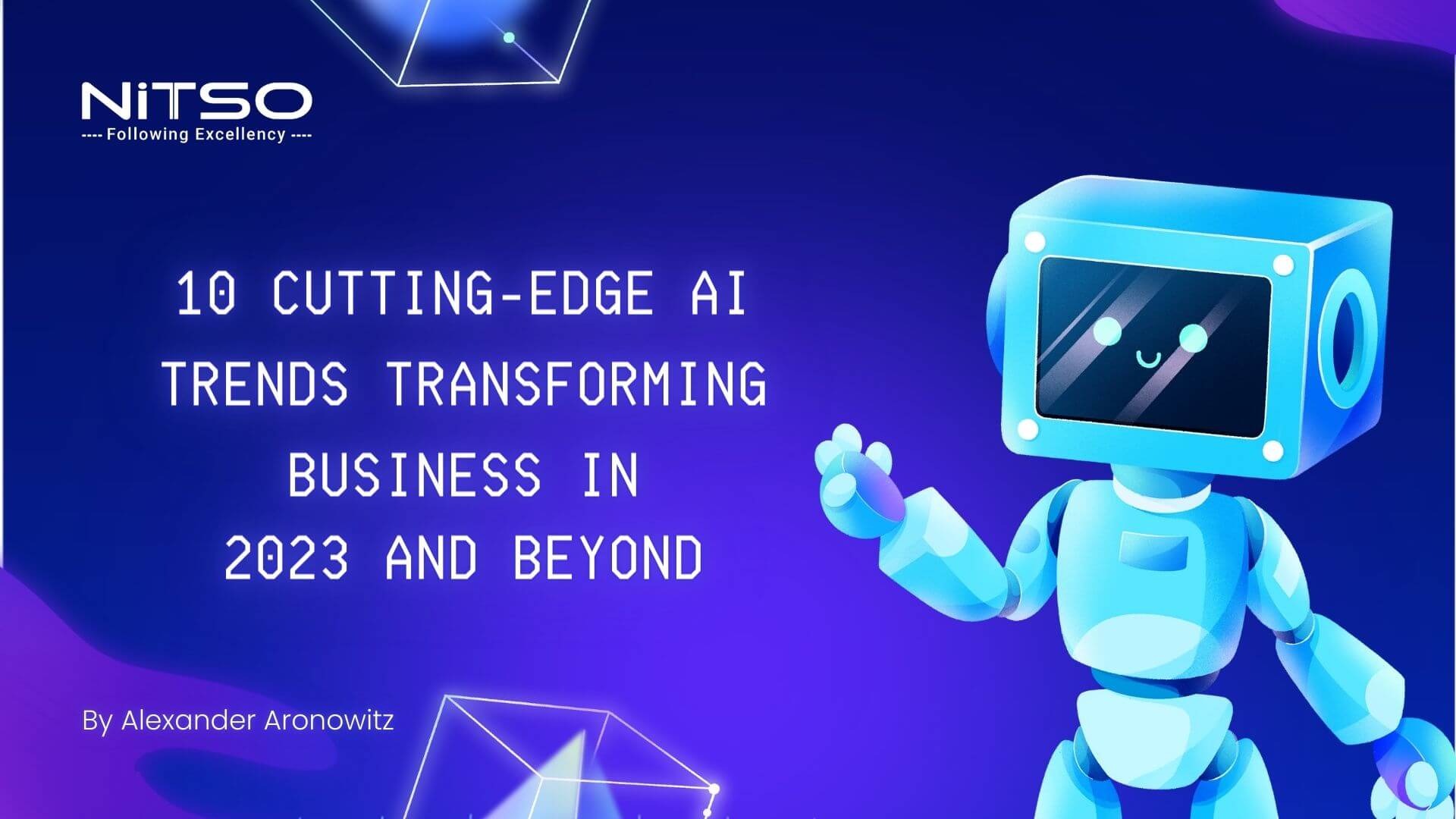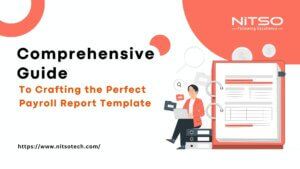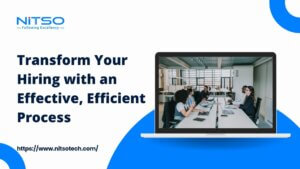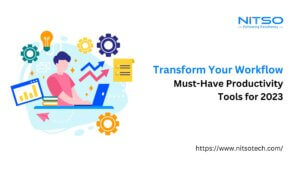Could emerging AI trends be the key to unlocking new heights of efficiency, insight and sustainable competitive differentiation for your business this decade? As leading enterprises embrace everything from predictive analytics to intelligent process automation to conversational bots, they are already achieving transformative performance improvements unseen just a few years ago. Is your company ready to ride the next wave of strategic AI innovation reshaping business worldwide today?
This definitive guide will uncover the top 10 machine learning capabilities that cutting-edge organizations like Google, Goldman Sachs and Amazon are leveraging for operational excellence and long-term advantage. Ranging from customer experience improvements through cybersecurity upgrades to unlocked innovation velocity, AI adoption promises to leave no business function untouched. Prioritizing these AI solutions now will determine which companies simply survive and which extract maximum strategic value from one of the most pivotal technology trends in history.
Table of Contents
1. AI-Powered Customer Service Agents
One of the biggest AI trends for business today is the rapid adoption of AI-powered customer service agents. Rather than relying solely on large call centre teams, forward-thinking companies are embracing smart chatbots and voice assistants to provide better, faster customer support.
These AI systems are powered by natural language processing and machine learning algorithms capable of understanding customer questions and complaints. They can quickly analyze dialogue and provide the right answers or solutions without long wait times. An AI customer service agent can handle thousands of inquiries simultaneously – far more volume than a team of humans. And the AI improves continuously based on new data. One study revealed a chatbot from IPsoft cutting customer service costs by 30% while also improving customer satisfaction scores.
By harnessing automated AI agents, businesses can provide 24/7 availability instead of restricted hours for customer support and quickly scale their capabilities. The data shows they may even deliver better experiences. Businesses should strongly consider AI customer service solutions as a top priority today and into the future.
2. Predictive Analytics and Data Intelligence
Another major AI trend for businesses is leveraging predictive analytics and data intelligence powered by machine learning algorithms. By applying advanced AI systems to massive information stores, businesses can uncover patterns and insights that would simply remain hidden from human analysis. AI-enabled predictive analytics can forecast future outcomes like upcoming customer demand for certain products or which marketing campaigns will have the highest ROI before the campaign launch.
Rather than relying on intuition and guesswork, executives can make critical decisions based on data-driven intelligence. An MIT study revealed retailers using predictive analytics through AI increased annual sales by over 30% merely by optimizing channels and inventory based on algorithmic outputs. Beyond predictive applications, invested companies deploy open-ended AI exploration of enterprise data to drive innovation.
By letting algorithms freely assess gigantic datasets spanning years, they gain qualified leads for everything from new product ideas to manufacturing improvements to HR enhancements. Prioritizing this kind of AI data analysis strategy allows businesses to surface game-changing perspectives traditional analytics would never reveal.
3. Automated Marketing
As AI revolutionizes the customer experience, it is also transforming into a pivotal tool driving marketing success. Businesses investing in AI marketing trends will gain an upper hand over competitors in acquiring customers and expanding revenue. An estimated 80% of companies ranked as top performers indicate extensive AI adoption in their marketing operations and strategy.
AI is powering marketing advancement in a few key ways:
Personalized and Impactful Campaign Content
Natural language generation algorithms create marketing copy tailored to different customer personas and journeys. The AI evaluates psychographic and demographic data to determine the messaging most likely to resonate with each microsegment. This hyper-personalization through AI improves conversion rates from cold to warm audiences many times over.
Optimized Media Buying and Ad Targeting
Machine learning mechanisms leverage intent signals, previous customer data, and real-time response data across channels to optimize where and when ads run to maximize results. The AI adjustments happen instantly to allocate the budget to the highest ROI areas. The streamlined iterative process closes the gap between targeted persona assumptions traditional marketing makes versus actual high-value audience pools uncovered through pervasive data. This allows companies to achieve staggering efficiency improvements like 10x ROI seen from major brands.
Rapid Content Creation at Scale
AI content creators, also called synthetic media engines, can generate blogs, social posts, landing pages, emails, ad copies, and more in seconds tailored to specific campaigns. This alleviates the strain on human marketing teams to manually develop assets which may take days or weeks while also enabling much faster iteration and personalization powered by AI. The automated content process with human guidance yields superior performance compared to the traditional manual approach.
Forward-thinking companies make AI the centrepiece of their marketing technology stack. Prioritizing this allows them to operate marketing like an intelligent optimizing engine instead of a static campaign-based function. They realize unmatched efficiency, relevance, value and growth powered by data and machine learning. Is your company ready to embrace AI-driven marketing?
4. Intelligent Business Process Automation
Moving beyond customer-facing functions like marketing and service, innovative businesses deploy AI solutions to transform backend operations through intelligent process automation. Instead of employees manually handling routine tasks like processing paperwork, data entry and claims management, specially designed AI software can automate the workflows to run 24/7 without human oversight. For example, an AI procurement system can scan invoices, extract key details, cross-check against databases, finalize paperwork and approve payments without a single person involved. This level of straight-through backend automation enables companies to digitize operations, reduce labour costs and enable employees to focus on high-value creative work.
According to leading research firm Gartner, using AI for business process automation can reduce operational costs by 30% while cutting process times by 80% – massive efficiency gains are very real today. The insurance company Geico applied intelligent character recognition, classification and validation algorithms to automate its pile of pending policy paperwork. This AI process automation reduced required staff by over 40 people while enabling faster customer onboarding and multi-million dollar annual savings. The exponential growth in processing power, advancement of machine learning models and expansion of training datasets have made AI-enabled process automation a #1 emerging AI business trend.
Aricle you might be interested in: Optimizing Payroll Processes with an AI-Powered Payroll Automation Tool
5. Enhanced Cybersecurity
As digital transformation accelerated over the past decade, it also exposed businesses to exponentially greater cybersecurity threats from hackers, malware, data breaches and more. Symantec reported a staggering 56% rise in targeted spear-phishing attacks against enterprises just in the past year alone. Thankfully, revolutionary AI cybersecurity platforms are fighting back to secure systems and data. AI-powered cybersecurity leverages complex machine learning algorithms to instantly detect network anomalies and suspicious user behaviour indicative of infiltration attempts in real-time. The AI systems autonomously fight back against malicious hacks and viruses while also alerting IT security teams.
According to research firm Gartner, over 85% of all enterprise cyberattacks today can be traced to just 20 common malware types – making the template signature identification that AI excels at extremely effective. By having AI cybersecurity solutions screening all network traffic, endpoints and cloud applications, companies can identify and deflect a whopping 85% of all potential attacks. Additionally, elite cybersecurity AI startups like DarkTrace and Cylance are taking things a step further with self-learning algorithms that actually anticipate novel zero-day attacks instead of just recognizing known threats. With the expanding digital footprint of modern enterprises and cybercriminals continually innovating new methods of attack, leaning on AI-augmented cybersecurity has become absolutely foundational. Is your company protected?
6. AI-Powered Decision Making
While AI is automating a growing array of business processes, innovative companies also implement AI solutions to augment and enhance human decision-making. With machine learning models capable of rapidly analyzing gigantic datasets well beyond human cognitive capability, they provide qualified and quantified guidance to executives and managers weighing critical choices:
- Demand Forecasting – AI algorithms assess billions of signals from across the entire supply chain to predict optimal inventory and production levels. This enables proactive adjustments rather than reactive scrambling when demand changes.
- Dynamic Pricing – Advanced AI tracks omnichannel signals around competitor pricing, local events, customer segmentation trends and real-time sales data to optimize pricing for revenue growth. Continuously optimized instead of periodically gut-checked.
- Customer Targeting – AI crunches customer lifetime value models, predictive propensity models, and contextual engagement guidance to identify ideal customer profiles and segments to focus growth investments on.
While AI should not replace human judgement, it provides an invaluable second opinion informed by data-driven insights humans could never compile or calculate on their own. Early adherents who find the right balance between human decisiveness and AI input will make the best quality decisions at both strategic and operational levels. This emerging new paradigm of AI-augmented management presents a key opportunity for companies to leverage one of the most empowering AI trends for business.
7. Computer Vision Applications
Beyond statistical analysis and natural language processing, another area of rapid AI advancement comes from computer vision capabilities – enabling a new generation of visual automation solutions for business. Computer vision refers to AI algorithms that can identify, classify, quantify and track objects within images, videos and real-world environments. This allows businesses across industries to QA products, forecast demand, optimize processes and save lives all based on instant image analytics instead of slower error-prone manual evaluation.
Some compelling business applications of computer vision include:
- Retail Stores – Shelf-scanning algorithms gauge inventory levels to optimize supply chains and placement strategies for maximum sales. Intelligent cameras also track customer demographics and interactions.
- Manufacturing – Quality assurance through computer vision massively reduces errors and waste identifying defects human inspectors would miss. Intel decreased defects by 90% using AI visual inspection early in processes rather than end-stage sampling.
- Autonomous Inventory – In warehouses and retail locations, AI visual perception enables next-gen supply chain robots to adaptively scan shelves and transport items based on demand signals instead of fixed routines.
The rapid pace of computer vision innovation in response to the data and market opportunity of business use cases makes it a priority AI technology trend. As sensors and cameras streamline more insights and automation grows smarter, companies with vision may just capture market share quicker.
Aricle you might be interested in: Impact of AI on Finance Teams
8. Natural Language Processing
Beyond imaging-based AI, natural language processing (NLP) remains one of the most versatile and business-ready AI capabilities today. NLP refers to machine learning algorithms trained to analyze, understand, and generate human language. This allows the creation of AI systems capable of sophisticated written and spoken interactions. According to leading research firm IDC, over 75% of enterprises prioritize investments in some form of NLP technology over the next two years – making it a foundational AI trend for business.
Some impactful applications of NLP in business include:
- Customer Service Bots – NLP-powered chatbots handle customer inquiries with personalized dialogue tailored to the specific context and intent. A major bank implemented a virtual assistant managing over 70% of all customer questions with 97% accuracy freeing live staff for higher complexity issues.
- Contract Analysis – By combing through dense legal terminology and documentation, NLP models can save thousands of lawyer hours assessing agreements to surface risks, extract essential terms, and benchmark existing documents against questionnaires.
- Competitive Intelligence – Analyzing earnings calls, press releases, economic projections and more unstructured data yields unique insights into competitor positioning unattainable manually. This enables data-driven strategy and operations.
NLP AI solutions enable businesses to understand language data at unbelievable scale and speed. Prioritizing these systems yields multiplier efficiency gains across departments while also future-proofing offerings with sophisticated automation capabilities.
9. Robotic Process Automation
While actual physical robots capture the public imagination around automation, a quieter revolution in back-office robotic process automation (RPA) through AI is transpiring. RPA software utilizes sophisticated machine learning algorithms to replicate a wide range of human administrative capabilities in digital environments. Think of them as software robots capable of interacting with IT systems, interpreting and classifying unstructured data, filling forms, moving files, extracting details from documents and operating enterprise apps with the flexibility, judgement and oversight capability exceeding traditional code-driven automation.
According to research by Gartner, businesses using RPA reduced operational costs by 25-50% in the first year across functions like Finance, HR, Supply Chain and Customer Service while accelerating process completion times by over 80% – representing massive efficiency gains from this AI business trend. Unlike physical robots confined to rigid routines, AI-enabled software robots adapt intelligently to variation, exception and complexity. One auto insurance firm using RPA saw their claims approval rate skyrocket by over 400% while maintaining accuracy – combining speed and precision exceeding human ability. With ever-advancing AI capabilities, RPA presents a lucrative path to unlock productivity and overcome workforce limitations for enterprises worldwide.
10. Research and Development
The cutting-edge AI application in business aims far beyond incremental efficiency gains in existing functions. Instead, it unlocks entirely new realms of innovation, discovery and growth through augmented research and development (R&D) capabilities. AI-based simulation, prediction, and generative and analytical tools allow scientists, engineers and designers to accelerate R&D timelines exponentially.
Some examples include:
- Material Science – AI simulation models rapidly screen novel molecular and polymer combinations assessing viability for unique mechanical, electrical and thermal properties unlocking innovations in manufacturing, energy, electronics and more.
- Drug Discovery – High-throughput AI simulation, quantification and analysis automate key preclinical experimentation like molecular assays, toxicity screening, and mechanism of action evaluations – compressing new drug candidate discovery from years to months with massive cost savings.
- Chip Design – Leveraging AI to optimize placement, verify correctness and simulate performance has reduced semiconductor design cycles by over 60% even as complexity continues rising. This brings leading-edge computing power to market faster.
While still emerging, AI-enhanced R&D presents staggering potential to compress development timelines across every industry. Leading biopharm firm AstraZeneca reduced candidate drug discovery by over 50% using AI techniques – showcasing the promise. Prioritizing exploring how AI research assistants could elevate innovation velocity offers a first-mover advantage with new IP over competitors. The next wave of scientific advancement may arrive through bits and bots instead of beakers and biosuits thanks to this key AI business trend!
Aricle you might be interested in: AI in HR Management
Wrapping Up AI Trends For Business
The pace of transformative AI innovation continues to rapidly accelerate, enabling businesses to achieve unprecedented levels of efficiency, insight, automation and competitive advantage. The 10 AI trends highlighted here merely scratch the surface of what is possible today and the surface-level changes coming in the next five years through techniques like advanced predictive analytics, hyper-personalization, intelligent process automation, augmented security and more.
Leading enterprises like Google, Tesla, Amazon and Goldman Sachs realize AI is no longer a niche advantage but rather a foundational necessity to stay operationally lean and strategically cutting-edge moving forward. The maturation of machine learning, expansion of training datasets and enhancement of models like convolutional neural networks, LSTM recurrent networks and transformers will drive use case sophistication much further. Investing in AI integration now establishes the digital infrastructure to rapidly adopt new capabilities later without infrastructure overhaul.
The next era of transformative innovation in business has AI under the hood. Will you lead that change in your company or find your operations disrupted by more forward-thinking competitors? The time is now to seriously evaluate where AI solutions can drive efficiency, unlock insights, boost security enhance decision-making and carve out sustainable differentiation. Get started today mapping high-potential AI use cases and move boldly to turn those opportunities into game-changing advantages!








0 Comments